New Puppy Incessantly Bites People/Nips Hard
Good Morning,
I just adopted a new puppy from the Humane Society this last weekend. She is a very sweet puppy that is loving when calm. The key word here is 'when'. She also gets very rowdy and, when she is this way, she wants to bite and I mean bite hard! She will bite anything in her path and if someone instructs her not to she will bite them with even more tenacity/attitude (their hand, finger, knee, ankle, anything she can get).
On that note, I am aware that puppies often have chewing issues. She has this too, but I am not at all talking about chewing here. I'm talking about biting people as a form of play, as a form of affection, and also as a form of aggression. She does not like my mother and attacked her the other day. Gave her a strong bite that left marks and drew blood while proceeding to terrorize my mother by circling her and biting wherever she could. My mother is in her 60's and was so scared she lost her bladder.
I am concerned about my Molly. I don't want her to be aggressive. She is a pit bull mix, which concerns me even more.
To anyone who has owned pit bulls, pit mixes, or any kind of dog that as a puppy started out by expressing themselves/emotions via true biting (again, not talking about chewing here), please help. I need to train this out of her or we will have to return her. I don't want to do that to her...!
Stella
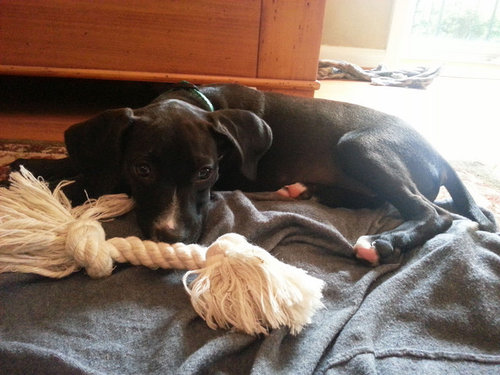
Comments (25)
User
10 years agoI really feel she is not a good dog for your situation. There is no way you should have let the situation with your mother escalate past the initial action by the dog.
It takes a very strict trainer/owner to stop and prevent a dog like that from that behavior. And the dog has to be trained(required) to complete obedience. I cannot stress that enough.
You will need to leash the dog before she gets into any situation where she bites. At the first sign, you correct. And continue correcting until there is no indication/attempt at biting. For however long it takes, every time.
You will need to be as controlling with her for almost everything she does. You said 'instruct'. You cannot 'instruct' a dog like that. You must require obedience--totally and unequivocally. You do not have to be mean or hurt the dog, but you have to make her obey, every time, all the time.
With all respect, I think you want a companion dog that you can enjoy. That dog is not such a dog and never will be. Her temperment is simply not adaptable to become such a pet.
She is disarmingly cute. That is the sad part, especially when dogs actions belie their appearance.
spedigrees z4VT
10 years agoAll puppies have vast amounts of energy and an insatiable urge to chew. Strict discipline is *not* the answer.
If your lifestyle does not allow for ample exercise, and many people's lifestyles do not, then a puppy is not a suitable dog for you. An older, laid back dog, well past the chewing stage, would be a better fit, especially with an older, frail person in the household to also look after.
My current "puppy" is over a year and a half, and she still jumps and bites. This is how puppies play. I redirect her attention by throwing a ball or frisbie for her to retrieve out in her fenced yard. This is a good energy release, without requiring that her older owner (me) participate by running/romping. In the house, I hand her a suitable chewy item when she goes into a chewing, biting frenzy. Among her favorite chewy things are ice cubes, large raw beef bones, empty paper towel rolls, and dog toys.
We have a wooded walking trail that runs up the hill on our property. Once around this trail is 1/2 mile, and I take her for this walk on a leash at least once every day. She gets to sniff at the bushes and trees where wild animals have been and pick up small dropped branches and shake them, and this experience is mentally enriching as well as physically tiring. She usually takes a long nap after we return from our walk.
Also you should be taking your puppy to a beginners class with a trainer who practices reward based, positive reinforcement training methods. This also would provide your dog with enrichment, and give you some tools to help with the problems you are having. I'm an experienced dog owner, having shared my home with many generations of dogs and puppies, yet I would never acquire a dog without attending a beginners class with a new dog. It is a way for you and your new puppy to get off to a good start.
If you are serious about wanting to keep your puppy I recommend that you take these steps to help this adoption succeed. Otherwise I would recommend returning her to the shelter and explaining to them that she is a good puppy but you bit off more than you can chew, and she is too active for your lifestyle. Then I would recommend a quiet older dog, but even with an older dog I would urge you to take a beginners class with a competent *positive reinforcement* trainer. I hope it all works out for you. Good luck!
Related Professionals
Beachwood Architects & Building Designers · Middle River Architects & Building Designers · Palos Verdes Estates Architects & Building Designers · Mount Vernon Interior Designers & Decorators · Appleton Interior Designers & Decorators · Ashwaubenon Interior Designers & Decorators · Fayetteville Furniture & Accessories · Carson Furniture & Accessories · Dover Cabinets & Cabinetry · University City Flooring Contractors · Everett Flooring Contractors · Owatonna Flooring Contractors · Scotts Valley Flooring Contractors · Summerville Flooring Contractors · Thornton Flooring Contractorsrobertz6
10 years agoHow old is the dog? Is it spayed?
Are there enough chew toys around for the animal?
Sounds like you need to introduce your dog to more folks and animals. The people should be dog-aware for best results, I think. Old, infirm, or dog-shy people may make things worse. If you wait until the dog is a adult to train, it will be that much harder.
Check out your local dog store for beginner dog courses. And ask dog owners you know (and respect) for their advice.
Read a few short articles on dog behavior. There is more than one philosophy on dogs, as you may have found out.Vertise
10 years agoI agree you're dealing with a puppy who needs to be socialized. It sounds like you need outside help with that, so I'd research obedience school. Now, not later. She's already growing up. Looks like a sweetheart.
spedigrees z4VT
10 years agoI should add that a beginners manners course serves multiple purposes, among them training, mental enrichment/interest for your pup, bonding with your puppy, and *socialization* for your puppy. Also this will introduce you to a trainer who can better answer your questions and help with any future problems, because she will know your dog and observe you interacting with her.
Fori
10 years agoMy dog (also a pitbull mix from the humane society) was a terrible nipper when we got him, at about that size. Just playful nips but puppy teeth hurt! That dog was pricklier than a cat. The humane society trainer told us to turn our backs and stop play when he did that. Yeah that didn't work. After a week of ouch, we tried the yelp method. Not saying you don't want other training techniques, but a startling LOUD yelp and withdrawal from play when the teeth touched skin really cured my puppy of nipping people fast. Less than two days and we liked him again. There were a lot of training moments and he's pretty smart so it took quickly.
We were tempted to return him too. Nobody wanted to touch the little SOB. But after we got rid of the nipping we decided he was okay. Now he's an 80 pound slug. (We had to address jumping as well. Do it while she's small!!)
Are you sure she attacked your mom and wasn't just excitedly playing? Not that THAT is good either but it's less bad.
annzgw
10 years agoI think there's no way for us to interpret how aggressive this dog is or whether it's just a puppy that's overly excited. The dog could have easily thought your Mother's response was a sign of playing so she continued to behave like an undisciplined puppy.
You need to be honest with yourself as to whether you're afraid of the puppy because she is part pit and if you're capable or raising a rambunctious puppy. If you've taken on more than you imagined, don't hesitate to return her and look for a dog that fits your household, and do it while she's young so someone else can work with her.
There are plenty of other dogs needing homes that better fit your family.DS had a pitbull mix and she was mouthy but she took it out on their older Boxer during playtime. Jumping was a problem for awhile but they worked thru it. The house also suffered some damage from her chewing but when it came to people she was the sweetest dog I've ever seen.
Be warned that she will need lots of exercise and I don't mean a casual walk in the neighborhood. The mix DS had could run all day, then would collapse and sleep in the evening. Luckily they had acreage!Vertise
10 years agoIt's amazing how well that yelp method works! I discovered that with one of my youngsters years ago. Never knew it was an actual method! lol Be sure to reward any small movement in the right direction. They are eager to please.
mudhoney
10 years agoIt sounds like this dog could easily become a real problem and danger if not dealt with correctly. Please do not deal with this dog with "corrections" as earlier stated--you are going to create a very unhappy, scared, angry dog that way. I highly recommend that you consult a qualified behaviorist/trainer who uses only positive reinforcement training. None of that old "dominance"/"correction" based stuff, which is based on completely debunked observations of captive wolves. I'll try and look up the two sources for good qualified behaviorists and post that info. I'm new to this dog owning stuff, but I've done a huge amount of reading and research. If the dog is too much, take it back and explain your issues to the shelter.
Debbie Downer
10 years agoI want to phrase this as a question - Ive lived with/known lots of dogs & puppies but have not raised one of my own.
This dog is biting hard and drawing blood - to me, that does not sound like the usual mouthy puppy play and nipping that I've seen.
Isnt there a point where you experienced dog owners might say this is not just typical puppy behavior, and if so, how would you define what that point is?
I think the previous posters advice to call in a professional who can meet and observe the dog s good - that way the OP can know for sure what's going on and get some direction about how to proceed. It could be the inclination to play is normal, but the ferocity/intensity of the biting is not - for whatever reason.
trancegemini_wa
10 years ago"Isnt there a point where you experienced dog owners might say this is not just typical puppy behavior, and if so, how would you define what that point is? "
puppies often don't realize when they are biting too hard, they learn to control how hard they bite by playing with litter mates (who will yelp if the bite is too hard), or from the mother who may growl or pull them into line when they do it, but not all puppies are quick at learning this. That's why making a yelping noise when a pup bites hard can help because that mimics how a litter mate would get the message across, it works with some pups but others find that even more exciting as if it's part of the game.
when my shih was a pup she had a real problem with this, and she also used to love nipping the back of people's legs, because to a pup this is all just a game. Even with a small breed it can really hurt when they don't have control over how hard they bite, my pup would bite your hand as you were petting her, and she did it so hard it often felt like she was trying to break a bone in your finger, and those sharp little puppy teeth give a really piercing bite. With a larger pup like the one the OP has, biting that hard can pierce the skin and draw blood but it's unlikely to be aggression, it's just this pup hasn't learned how to control the intensity of their biting when they play
spedigrees z4VT
10 years agoThe intensity of puppy play is somewhat breed related, but extreme intensity play biting is much more a result of frustration due to lack of sufficient exercise and due to boredom. A puppy who never gets to experience other environments besides some rooms in a house and an outdoor pen or small yard is far more likely to play more roughly than a dog whose routine includes walks in the world outside, weekly trips to "school" and frequent practice of exercises learned during the week with his owner, games of retrieving a ball for 1/2 hour or so in the yard, etc.
When I say breed related, there are two considerations. One is that some breeds are just more rambunctious and active than others. For instance my sheltie is a very active dog and sometimes hurts when she bites in play, whereas a bassett hound pup is quieter by nature. The other consideration is the size of the jaw. A dog with a large mouth and jaw like some of the bull breeds has more power/greater leverage, and can inflict more damage with a bite, even in play. The OP's dog to me looks like she might have some pit in her, but also some retriever blood. It's hard to tell just by looking though.
Also when I suggested that an older dog might be a better fit, I was not suggesting a geriatric dog with special care needs, but rather a dog who is middle aged, in the 7 or 8 year range. Probably looking for such a dog at a rescue would be better than adopting from the pound, because most rescues keep their dogs in foster homes. The foster mom will have evaluated the dog in a home environment, and can give an assessment of whether this dog would fit calmly into a home with a geriatric member.
Raising a puppy is very similar to raising a (human) baby. As with potty training a child, one needs to be on call constantly during the housebreaking phase. The puppy needs to be taught manners and socialized by going to school, just as a child does, and through exposure to various things in the environment, car rides, doctor visits, walks around the neighborhood. Fortunately raising a pup is easier than raising a child, and the process spans less time, but the intensity of effort is about the same during the puppy stage of a dog's life.
If you are committed to making this adoption work, keep good cheer in knowing that all puppies outgrow the teething related need to chew as well as the requirement for rambunctious play. What the dog learns and experiences during this impressionable puppy stage will be with him/her for a lifetime however.
annzgw
10 years agoWell said, tracegemini!
I believe there's no 'one way fits all breeds' type of training and unfortunately most owners lack the experience and knowledge to determine what training/behavior-modification a dog/puppy needs.spedigrees z4VT
10 years agoRespectfully Annz, I disagree. Positive reinforcement training works on all breeds of dogs, and multiple species of animals. I have been in a variety of PT classes and have witnessed dogs of all breeds and mixed breeds alike benefit and learn equally, with different instructors. The old "dominance based" training has pretty much been debunked, and proven to "shut down" dogs and even to create dangerous behavioral problems. PR training has been used on dogs, dolphins, circus and zoo animals over the past decades with excellent results.
Also it serves to remember that the OP's dog is an innocent *puppy* not a dog with ingrained dangerous habits.
User
10 years agoI use a form of dominance based training combined with positive reinforcement. Or positive reinforcement combined with dominance.
Reason? That is how dogs raise and treat dogs. There is a pack structure and a pecking order. Thar is inbred in dogs, they have to have the pack structure or they have all kinds of problems.
Now, rolling a dog for misbehaving is not useful and is usually counterproductive. Beating is totally inappropriate.
Using reinforcement only is not going to work with all dogs.
To train a puppy, a mother dog first commands respect and obedience. She does not reward. Once the puppy begins to obey, the mother can begin rewarding.
The key process is for the trainer to know which method to use and when for each dog. Rewarding an aggressive or highly dominant dog is simply not going to work. As dominance for a highly submissive dog is a complete disaster.
mudhoney
10 years agoTo the OP, if you are still around--to find a good trainer, look for one that is a member of the Association of Pet Dog Trainers, the Animal Behavior Society, or the Association of Animal Behavior Professionals. You could check their websites. Most important is that you feel comfortable with them. Good luck in whatever you decide to do, and please don't feel bad if you decide this dog is not right for the situation with you and your mother.
Nancy in Mich
10 years agoFrom what I have read on canine development, puppies who bite too hard often have been taken away from their mother and siblings too young. As others have said, a puppy's siblings will yelp if the bite is too hard and will refuse to play. That is intolerable to a pup, so it learns to moderate its bite and to play nicely with others. This lesson is used throughout the dog's life and is known as "bite inhibition." It keeps a puppy from biting its family too hard, a young dog from biting playmates too hard, a grown dog from biting the had that is giving a treat, and a family dog from chomping down on the hand of a toddler who has put it where the dog does not want the toddler to touch, as the dog tries to move the hand away!
Yelping immediately when teeth touch you, turning away and stopping the interaction with the puppy, gives it the message that teeth on skin means all good things stop.
Whether this is a good dog for you or not, I don't know. I would get the advice of a behaviorist. You might try to find a puppy play group where Molly can spend a few hours at a time, too, if you keep her. This would have to be with an experienced dog facility. I have found doggy day care to be the best thing for improving behavior at home. "A tired dog is a good dog."
I believe that the standard is that no puppy should leave its litter mates and mom before 8 weeks of age. Some breeds may have an even older recommended adoption age. But always ask how old the pup was when it was surrendered. Look elsewhere if it was less than 8 weeks old.
I wish you and Molly and your family the best!
trancegemini_wa
10 years ago"From what I have read on canine development, puppies who bite too hard often have been taken away from their mother and siblings too young."
I think that's too oversimplified, it's not a given that a pup that does this was too young when they left the litter, some pups just take longer to learn to this type of control and as I mentioned above, some pups don't react to the yelping in the same way as others do. My pup for example was 12 weeks when she left the litter and she still had a big issue with this but she still didn't understand that she was causing pain with her biting
calliope
10 years agoI'm sure not going to jump into the controversy on the best way to train a pup. I'll just suggest to the OP to be very reluctant to 'translate' what this pup is doing as aggression and label it as such. Especially be reluctant to do this if you are returning the pup to a shelter. Do describe the behaviour and be honest, but leave it open ended and non-judgemental. Some shelters euthanize a returned (aggressive/biter) just on the say-so of the adopter and it would be an unfair death sentence if it were a case of rough puppy play.
spedigrees z4VT
10 years agoHandymac, you are entitled to your opinion on dog training, but dominance training combined with positive reinforcement training is a contradiction in terms. Positive reinforcement training is a school of thought that has nothing to do with old school dominance-based methods. You or the OP could learn about reward based training here:
http://positively.com/positive-reinforcement/why-positive-reinforcement/
http://ahimsadogtraining.com/handouts/training-basics.html?alt=learning+theory
I used the old school model on my first dog back in the 1970s, and compared with the results with my subsequent 6 dogs, there is just no comparison. To say that positive reinforcement training will not work on every dog is preposterous, as I've seen it work with a wide variety of breeds in many dog classes taught by different trainers using PT methods.Nancy_ in_ mich, you hit the nail on the head with the axiom "a good dog is a tired dog!" I think your suggestion of a doggie daycare is a very good one.
Vertise
10 years agoThat is good news! I agree not to label it aggression. As far as returning her, if it were to come to that, maybe your trainer friend can find a foster to work with and re-home her. It is true that shelters will put dogs down if there is an aggression issue. If they are swamped with animals, or short on staff, she might not get the chance for behavior modification there.
Good luck to you both!
dogdancer9
10 years agoI adopted a retriever puppy years ago that also was a nipper, biter and teeth were sharp like razor blades, my arms were torn to shreds and if I wore shorts, she would jump up and tear my legs. Everyone would ask what happened to you. Well I adopted a retriever puppy with razor blades for teeth.
Finally, we tried the Mesh Muzzle.
If she bit at flesh, command NO BITE.
If she bites again, then put the MESH MUZZLE on for only 5 minutes.
Then remove, she was very sweet, licking us, letting us know she was sorry.In less then a week the biting of flesh stopped. We were prepared, we each had a mesh muzzle in our pocket incase she forgot from time to time.
After a few months this was a non issue. No more biting.
If she gets excited, put a toy in her mouth.
Or command NO BITE and gently hold her mouth closed for 15 seconds as a reminder.
Hope this helps.
HU-985275844
5 years agoI have a 14 week puppy and she has been biting us very hard she also likes to bite our clothes and when she is biting she growls at us.she is part jack russell and northfort terrier and chihuahua she can be sweet when she wants but i just want her to stop biting.i tell her no biting and when she stops i give her a treat she loves playing but can bite very hard any advice?
Nancy in Mich
5 years agoHU-985275844, I would try crying out and turning away and refusing to play when her teeth contact your skin. Return to play when she is calm.
If that does not work, it sounds like that mesh muzzle worked well for DogDancer9.
You can also try walking the dog for a long, long walk before playing. The dog will be more tired, then, and will play nicer.
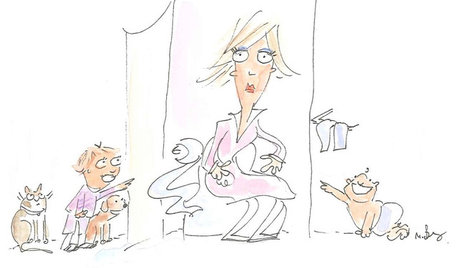
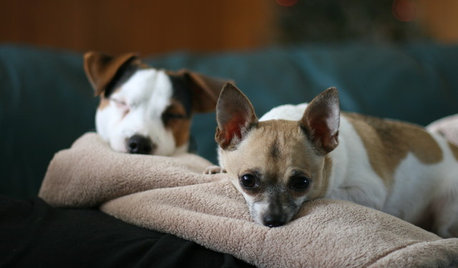
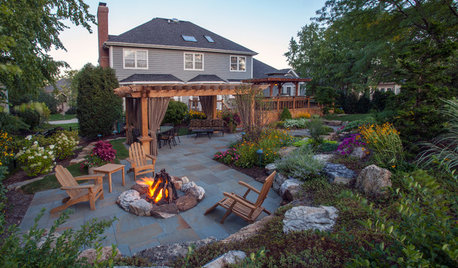
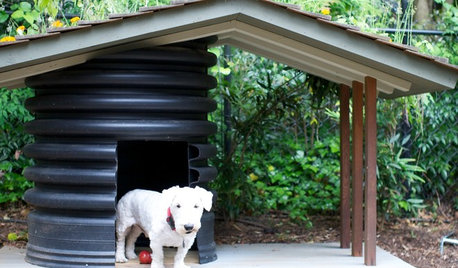
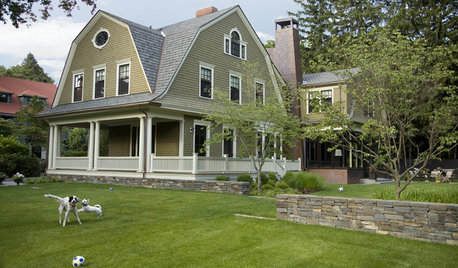
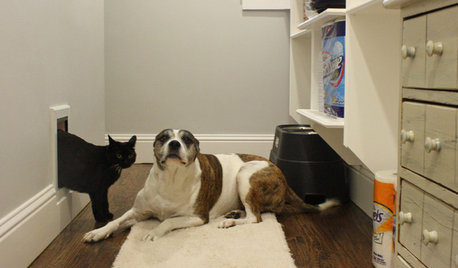


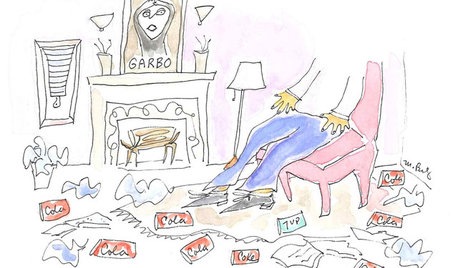







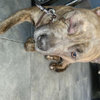

StellabeeOriginal Author